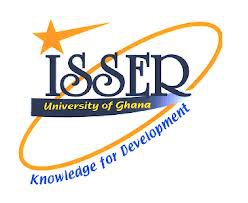
The Institute of Statistical, Social and Economic Research (ISSER) of the University of Ghana, Legon, on Thursday launched the “State of the Ghanaian Economy Report (SGER), 2013.
The Report, compiled by a team of researchers from ISSER, cited structural limitations in infrastructure, labour markets and declining commodity prices as contributing factors to the slow-down in the growth momentum in many emerging and developing economies including Ghana.
It noted that, nevertheless, the near-term outlook for Ghana was positive, with growth projected at 8.0 per cent and that of non-oil at 6.5 per cent in 2014.
“Backed by strong investment in the oil and gas sectors, as well as by the public infrastructure and favourable commodity prices, Ghana can sustain continuous economic growth well into the future, provide continuous economic growth well into the future, provided the country improves its macroeconomic management which requires bold efforts to reduce its budget imbalance,” it added.
The SGER, which is the 23rd edition in the series of publications since 1991, provides a detailed assessment of how the various sectors of the economy, notably agriculture, industry and services fared in the past year.
Professor Felix Asante, Director of ISSER, presenting an overview of the report, said Ghana’s economic growth remained fairly resilient in the face of the global recession, though the rate had been declining since 2011.
He said the economy’s real Gross Domestic Product (GDP) growth rate of 5.4 per cent in 2013, however, was short of the targeted 8.8 per cent.
“This negative outturn is the largest since 2008. For instance, in 2012, the shortfall was 0.6 per cent, compared to the 3.4 per cent in 2013,” he said.
Prof. Asante said Ghana’s growth in 2013 was buoyed particularly by oil exports, with the non-oil GDP growth rate of 3.9 per cent, compared with 5.4 per cent growth for the overall GDP.
“Furthermore, the oil sector accounted for a much larger proportion of GDP growth in 2013 than in 2012, when the overall GDP and non-oil GDP growth rates were 7.8 per cent, respectively,” he said.
He said disaggregating growth, the largest sector service, was also the fastest growing sector in 2013 with a growth rate of 8.9 per cent followed by industry at 7.0 per cent, and finally by agriculture at 5.2 per cent.
“While the growth of industry remained unchanged between 2012 and 2013, the growth of service fell from its 2012 value of 10.2 per cent. Finally, agriculture growth rose substantially from 2012 rate of 1.3 per cent.
‘Nonetheless, this sector’s share actually decreased slightly from 23.0 per cent of GDP in 2012 to 22.0 per cent in 2013. Thus, despite the major improvement in its performance, agriculture continues to perform relatively poorly, and to assume less and less prominence within the Ghanaian economy,” he said.
Prof. Asante attributed the downward performance of agriculture sector to the rapid expansion in the oil sector, which shrieked the contribution of the agriculture sector in relative terms, even though the sector was experiencing some expansion in absolute terms.
On inflation, he said the end of inflation rate in 2013 was 13.5 per cent compared to 8.8 per cent in 2012, far exceeding the targeted rate of 9.0 per cent.
Prof. Asante said government’s total revenue, comprising tax and non-tax revenues as a percentage of GDP, increased from 21.6 per cent in 2012 to 22.4 per cent.
“Government discretionary expenditure rose in 2013 to GHC 19, 858 million from GHC 18,512 million in 2012, representing a 7.3 per cent increase. Regarding the component of discretionary expenditure, the largest items were personal emoluments, total investment, and arrears clearance,” he said.
He said: “Personal emoluments have been consistently rising since 2009, increasing from GHC 2,478 million in 2009 to GHC 4,323 million in 2011; and further to GHC 6,665 in 2012… in 2013 it further increased to GHC 8,115.4 million, indicating a 21.8 per cent increase from the 2012 figure.”
Prof. Asante said in contrast, total investment expenditure declined between 2012 and 2013 by GHC 673.8 million, representing a decrease of 5.8 per cent.
Prof. John Owusu Gyapong, Pro-Vice Chancellor, Innovation, Research and Development(RID), University of Ghana, launching the Report, said as an educational institution of higher learning and marching towards a research institution, “it our duty to throw more light on issues rather than generate them”.
He said so much discussions generated on the airwaves these days turn out to confuse the uninformed and “I think it is the responsibility of the academia to contribute to unravel what the truths are”.
He commended ISSER for its efforts and roles in that direction.
Prof. Gyapong said people only throw heat on issues instead of throwing light to inform the public and urged ISSER to continue the indepth analysis and try to sustain it on yearly basis.
He said the University intended to expand the report to other domains of the economy to throw more light on issues in the public domain.